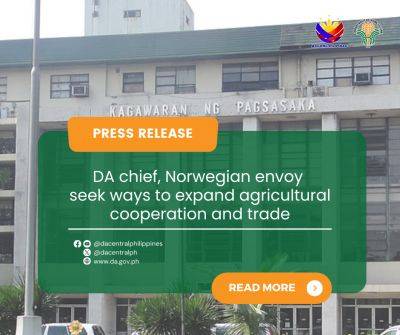Quality and quantity in infrastructure projects
Infrastructure development has long been recognized as a driving force of an economy. The growing population of the Philippines and its rapidly developing economy demand an increase in infrastructure.
The current administration has made clear that infrastructure is a priority with the Build Better More flagship program, facilitating infrastructure development across various sectors including physical connectivity, water, and power and energy. Some 186 projects across the country have been rolled out, with an approximate aggregate cost of US$163 billion.
This is not just a numbers game, either. Equally important is the resilience and sustainability of the infrastructure projects, such that they are able to withstand the passage of time and the occurrence of natural disasters, to which the Philippines is prone.
Moreover, infrastructure projects need to be transformative – not just big-ticket or costly, but able to truly make a difference in the lives of the people both at the present time and in the future. They lay the foundations for a prosperous and competitive future that will position the Philippines as a dynamic player in the global economy.
The virtue of public-private partnerships is key to this. The government neither has the wherewithal nor the technical expertise to undertake infrastructure projects on its own, and it is here that the private sector becomes an indispensable partner in nation building. The private sector has time and again proven to be a valuable partner of the government in the financing, construction, and operation of infrastructure projects.
And there is room for an even closer partnership. Accelerating infrastructure development will undoubtedly be a strong foundation for progress and a sustainable future for the Filipino people.
There have been notable best practices in public-private partnerships for infrastructure development. The example set by the public sector’s collaboration with ACCIONA easily comes to mind. ACCIONA is a Spanish infrastructure company that has moved its regional office from Singapore to the Philippines.
ACCIONA is a key player behind the Cebu-Cordova Link Expressway in Cebu, as a member of a joint







